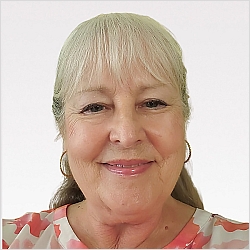What's My Approach to Therapy?
I am Dr. Cynthia Agbayani, a licensed professional counselor, and Air Force veteran. My doctoral studies focus was attachment and trauma. I have 25-plus years of experience working with at-risk youth, families, couples, and individuals covering various issues. I specialize in attachment, trauma, anxiety, and family issues. I work with people who range in age from toddler to old age in varying settings, such as home-based, outpatient, residential, and telehealth.
I employ an eclectic approach based on my client’s needs using many different modalities. I am trained in several evidence-based practices to treat anxiety, depression, trauma, and suicide prevention. I believe in doing whatever it takes to help my clients move toward mental health and wellness.
Even though my specialty is in at-risk youth and families, I enjoy working with all client populations. My experience includes combat veterans, LGBTQ clients, couples, adoptees and their families, foster care children, and youth, clients in transition (life stage, separationdivorcemarriage, career changes, etc.), clients with substance abuse issues, and clients in spiritual crises.
I employ a nurturing, positive stance using active listening. I believe I am an agent of change and seek to bring my excitement and enthusiasm to the fore to encourage clients to take those difficult steps toward change. I enter the therapeutic alliance with openness, clarity, and serenity no matter the issue at hand.
I was drawn to professional counseling after talking with a professional mentor who was supporting youth with substance use issues. I had already retired from the Air Force and wanted to find a way to work with troubled youth in our community. After several years of providing supportive counseling, I sought my master's degree and then went on to pursue a doctoral degree and licensing. I also completed a Master's Certificate in Clinical Mental Health Counseling.
Successful care starts with a thorough intake, addressing immediate concerns (i.e., suicidality), goal setting, and establishing a therapeutic alliance. I encourage clients to set goals that promote self-understanding and encourage risk-taking--the active steps necessary for healthy change. Clients see progress through meeting objectives that lead to the completion of their goals.
Our first session is designed to help clients become comfortable while providing historical information that aids in assessment, diagnosis, and treatment goals. We work on establishing a strong therapeutic alliance by getting to know a little bit about one another.

